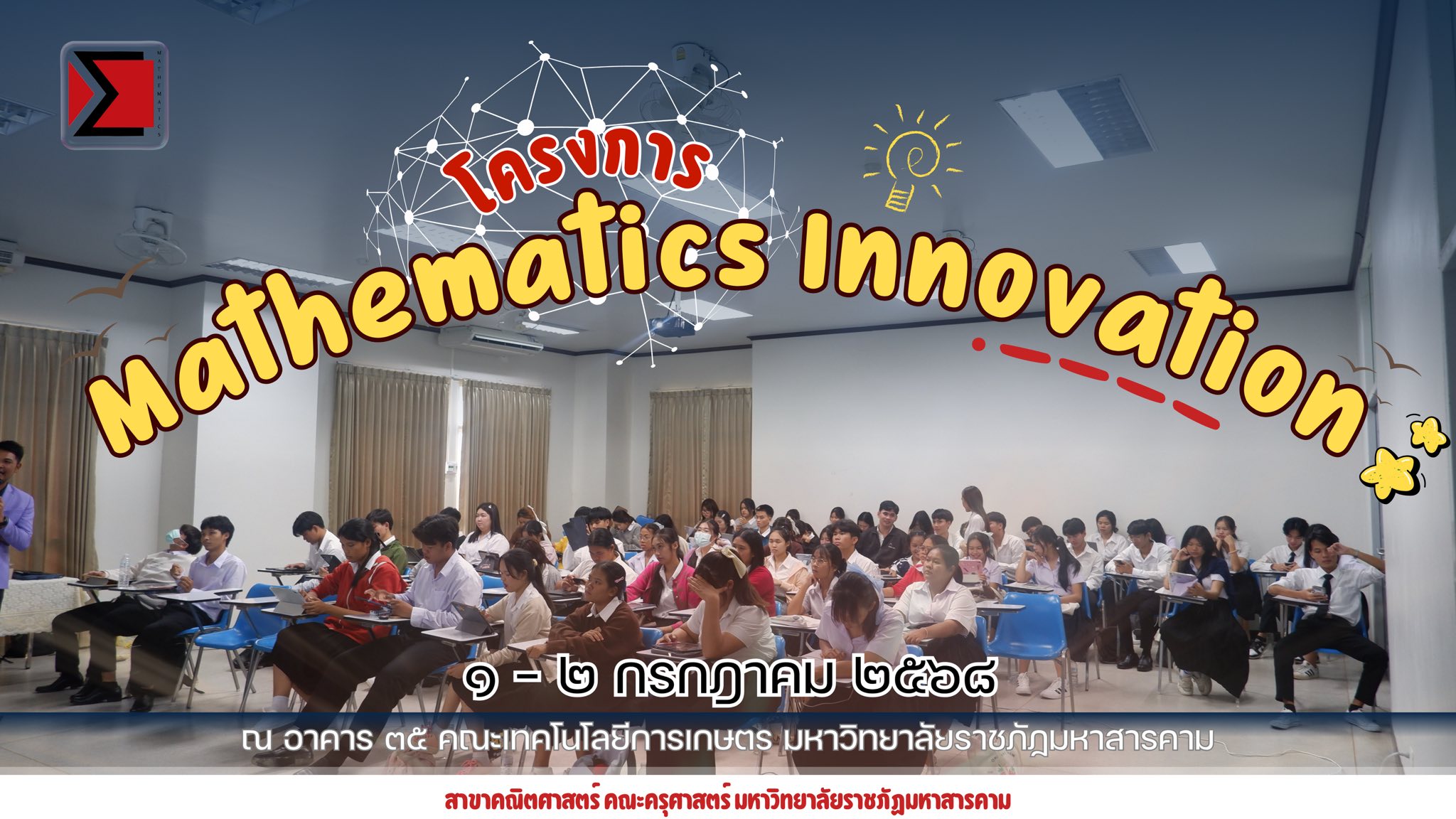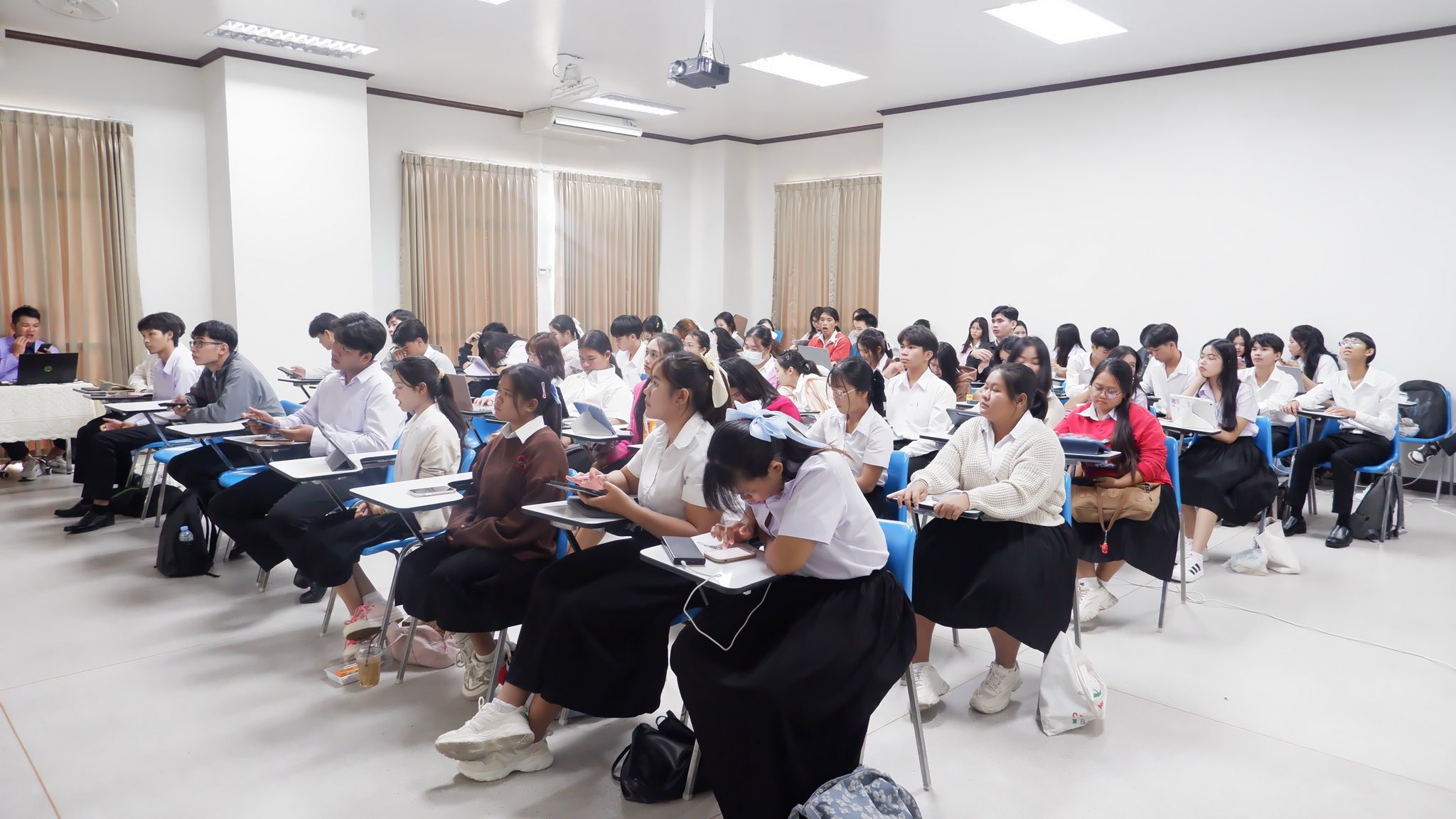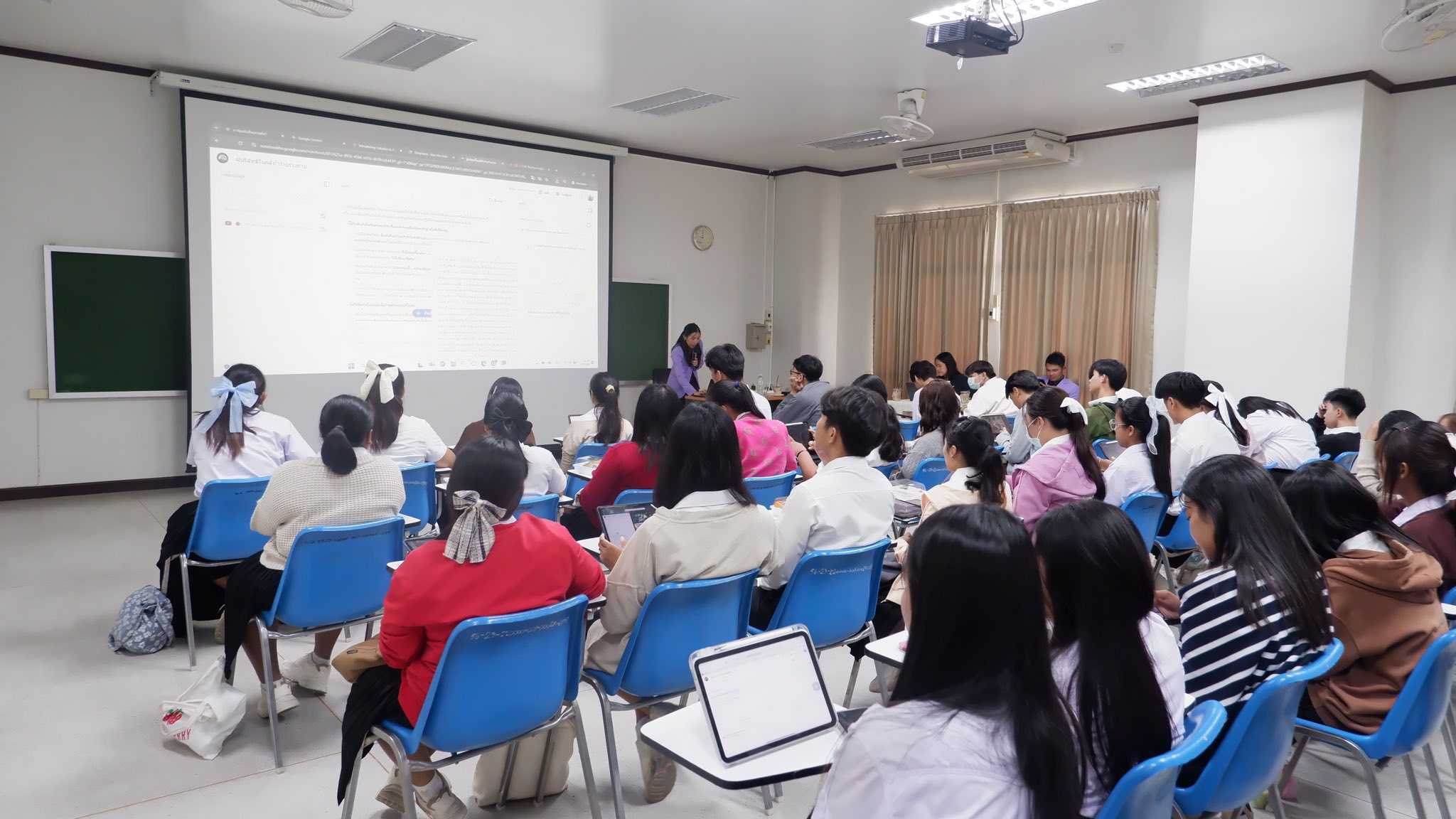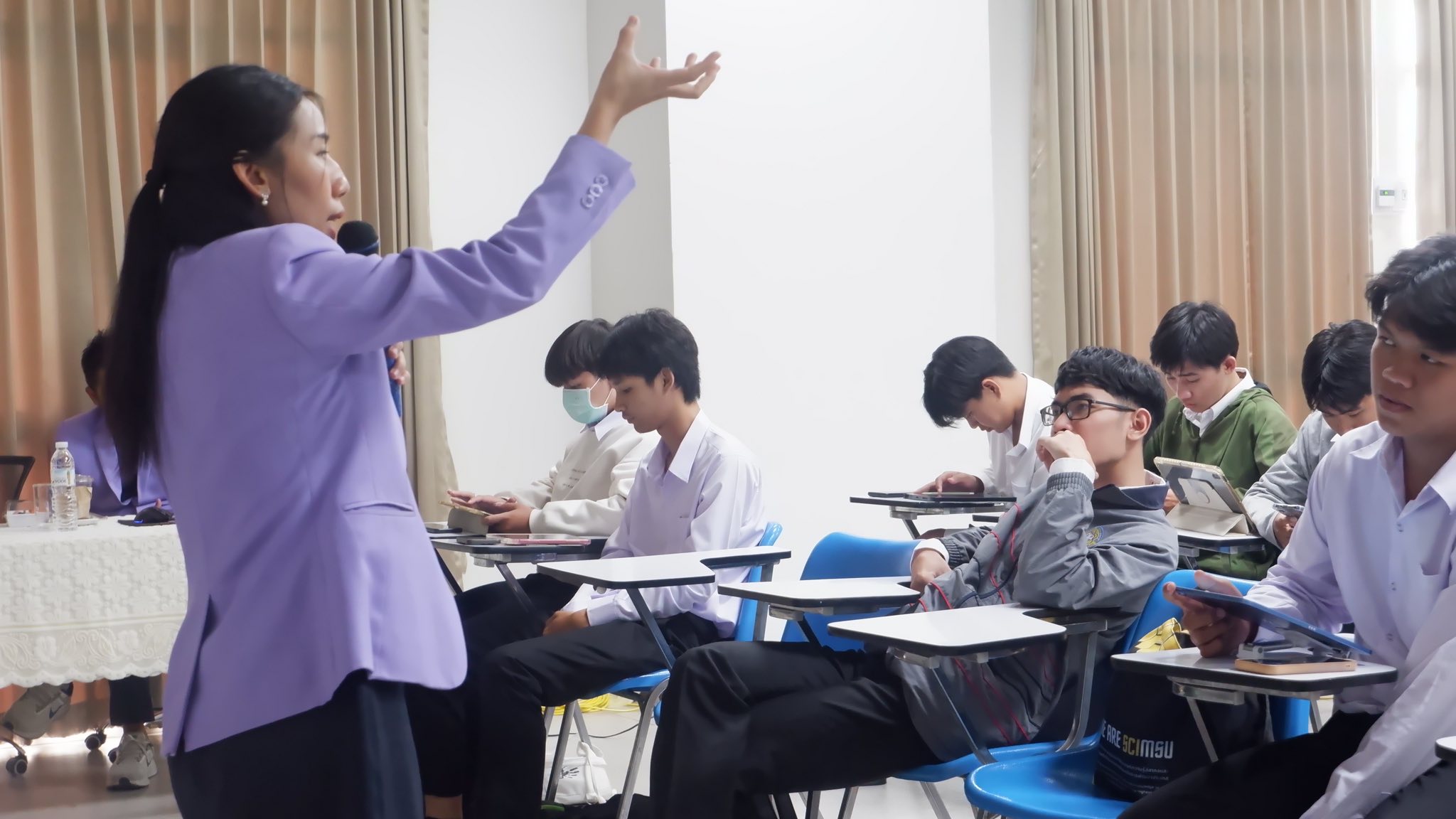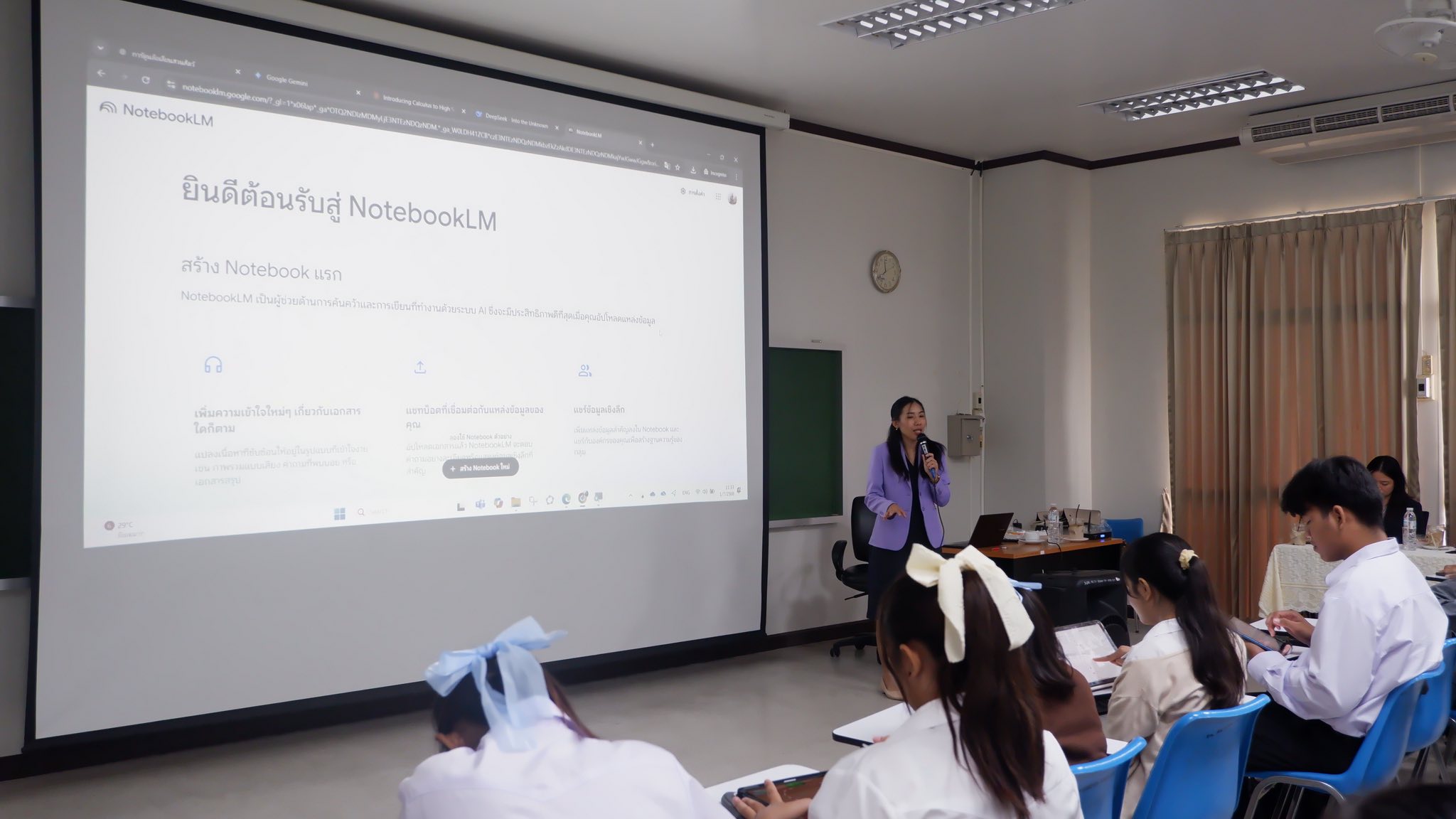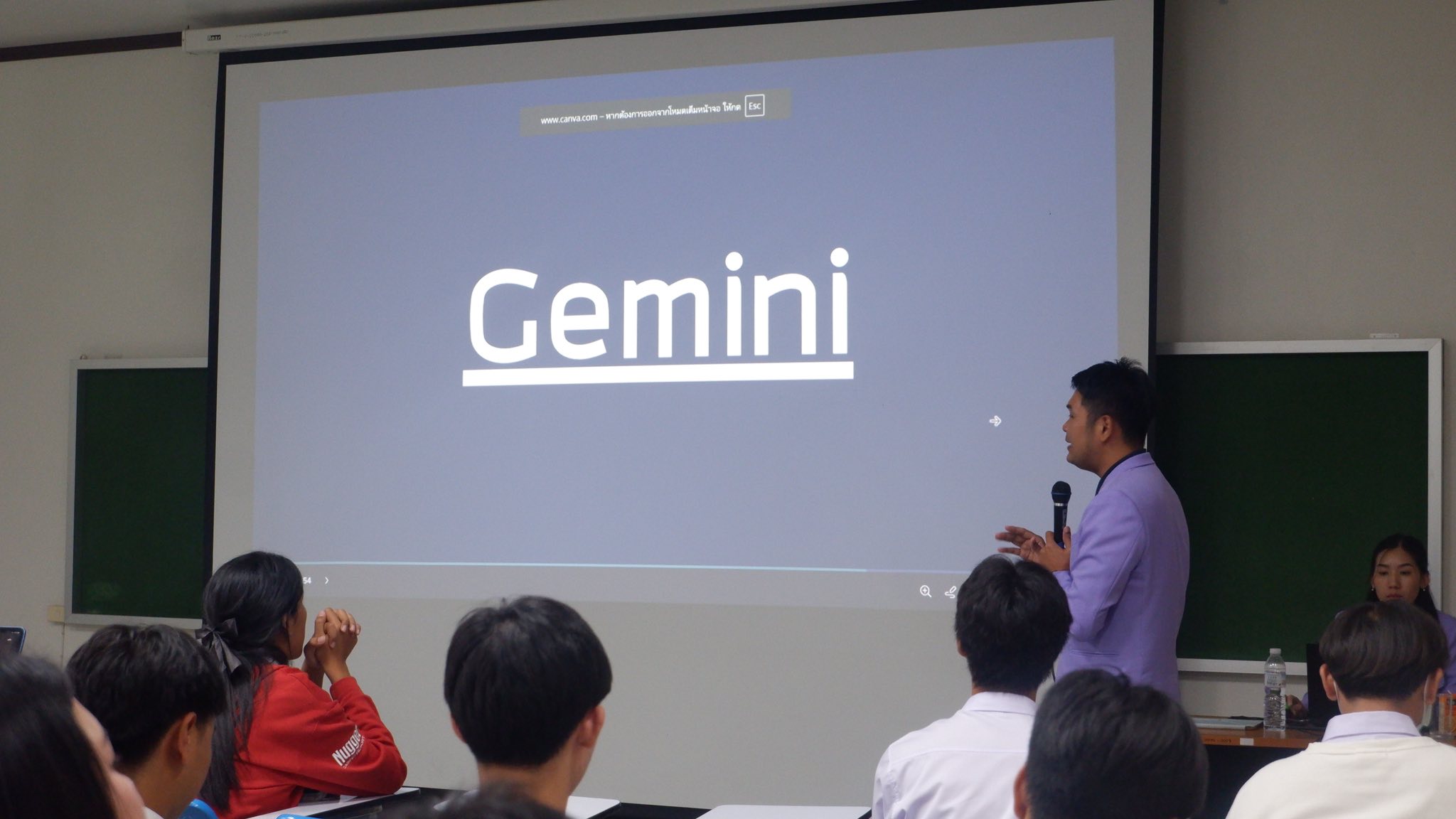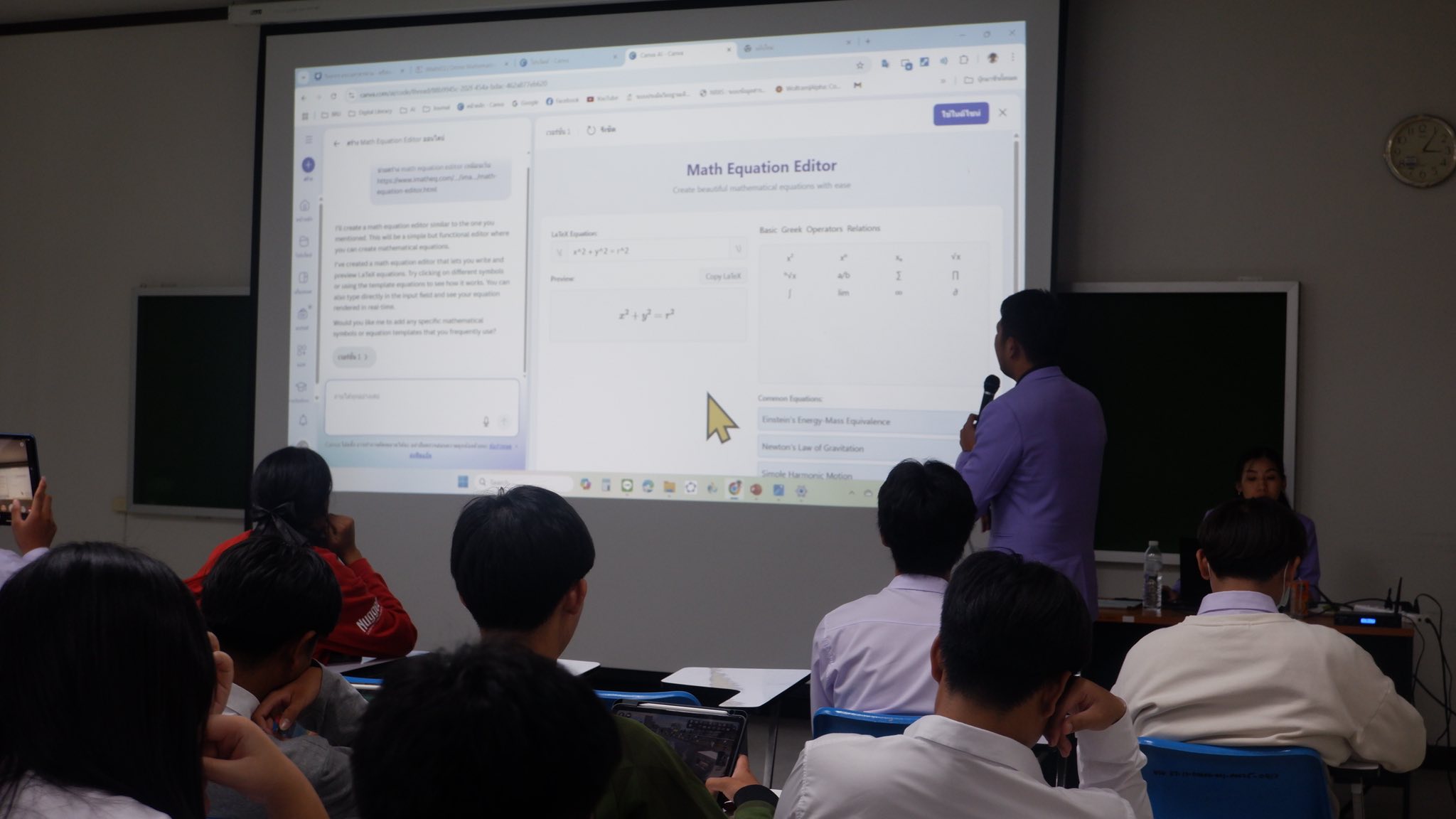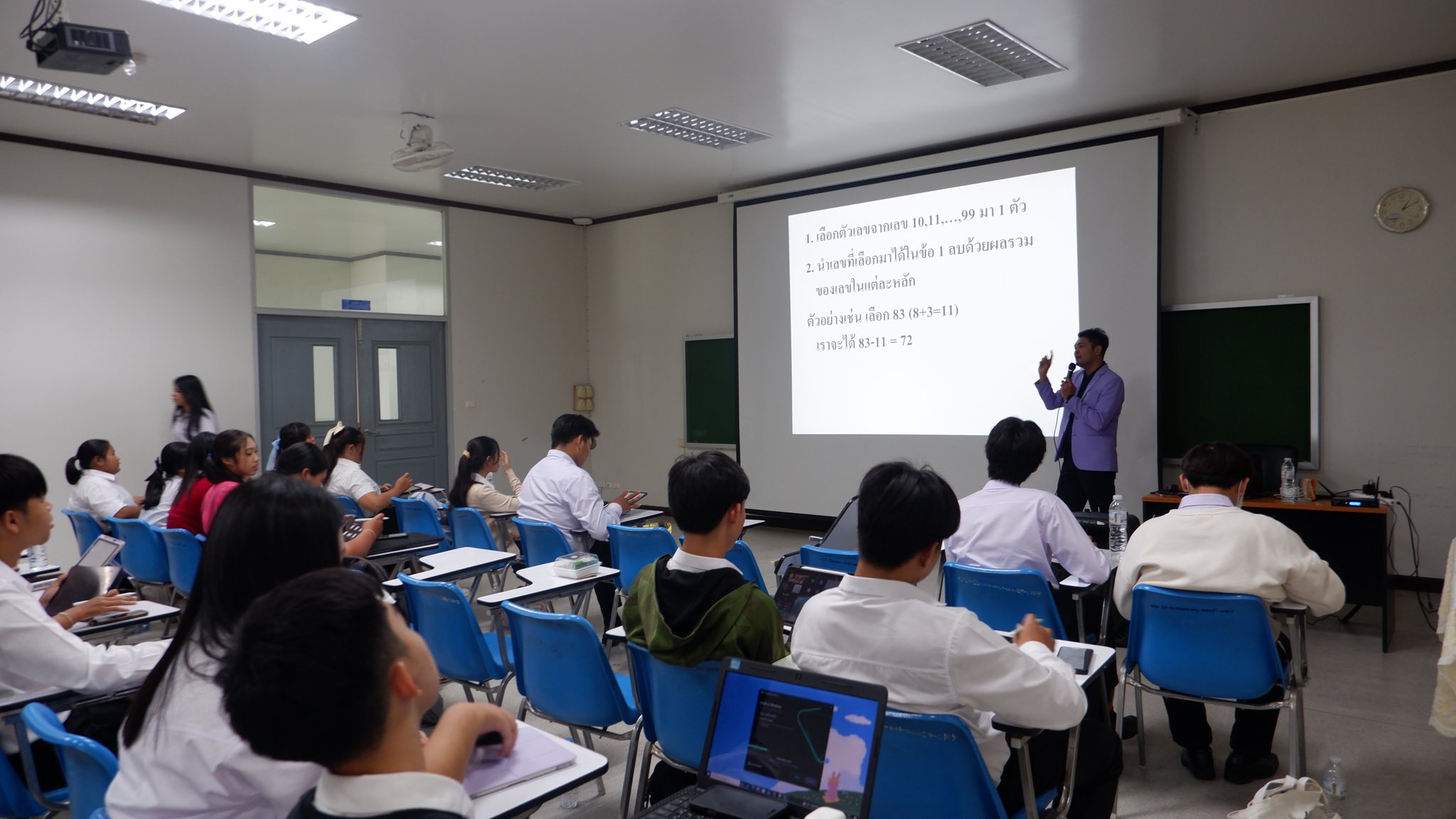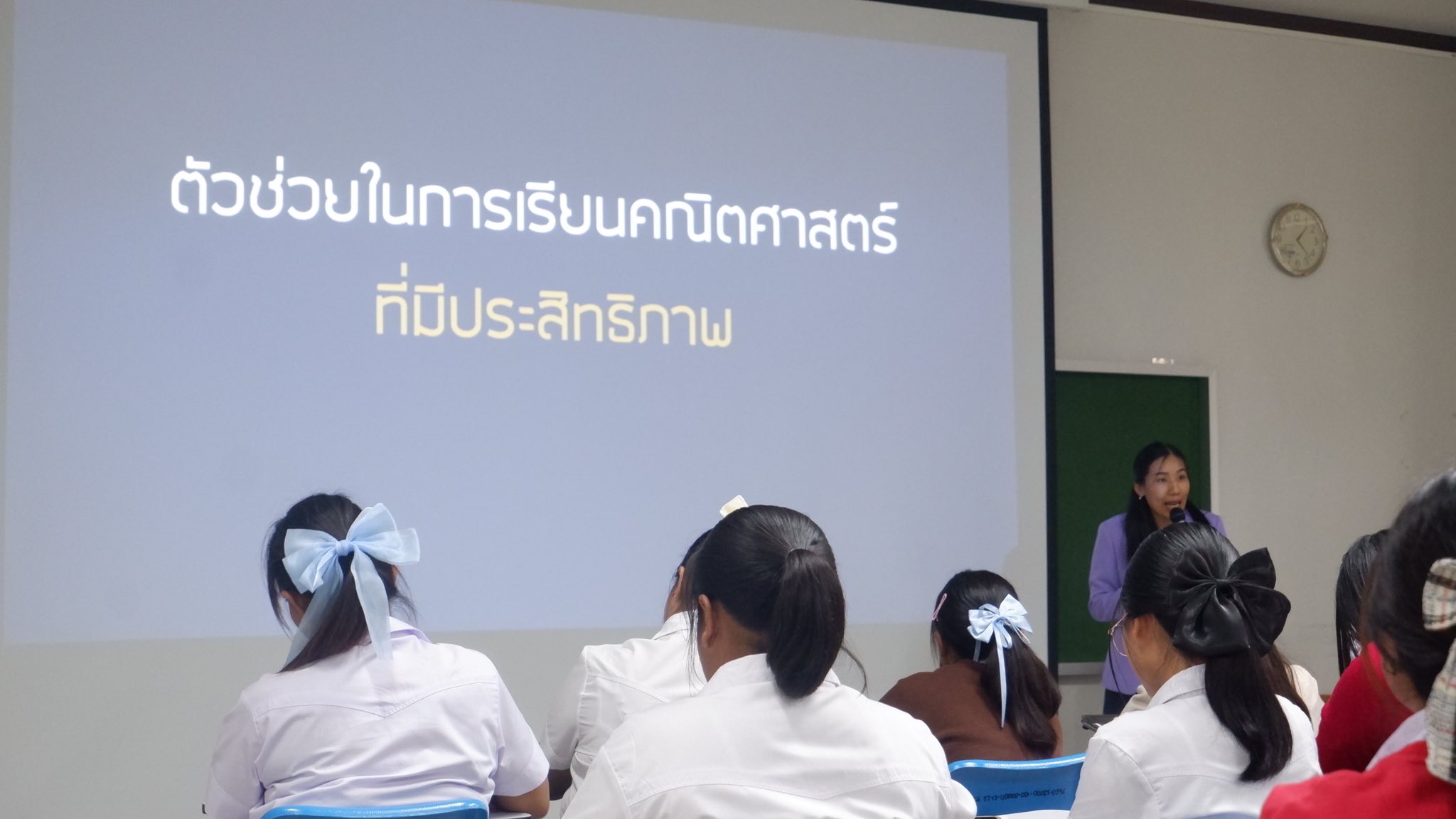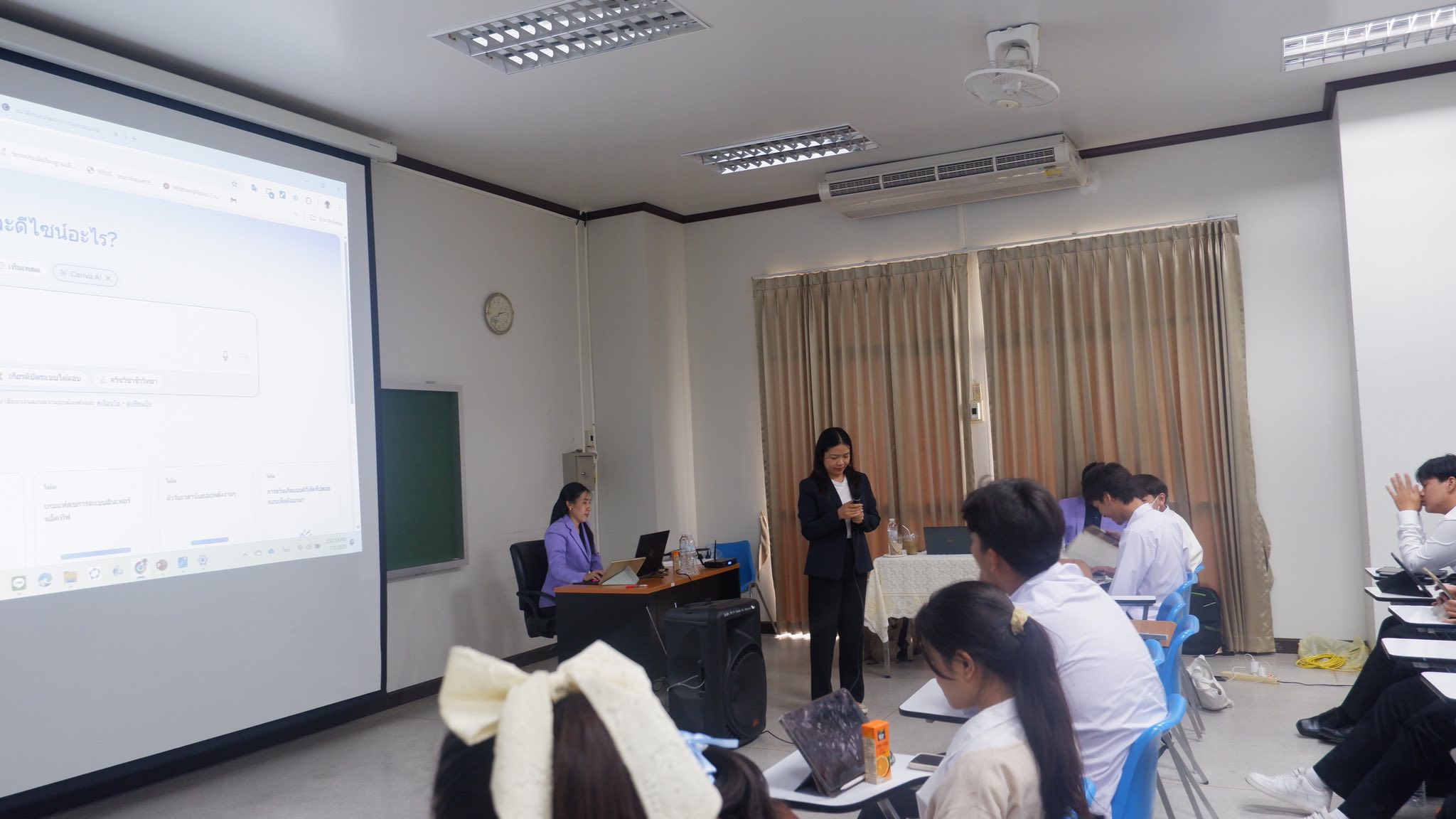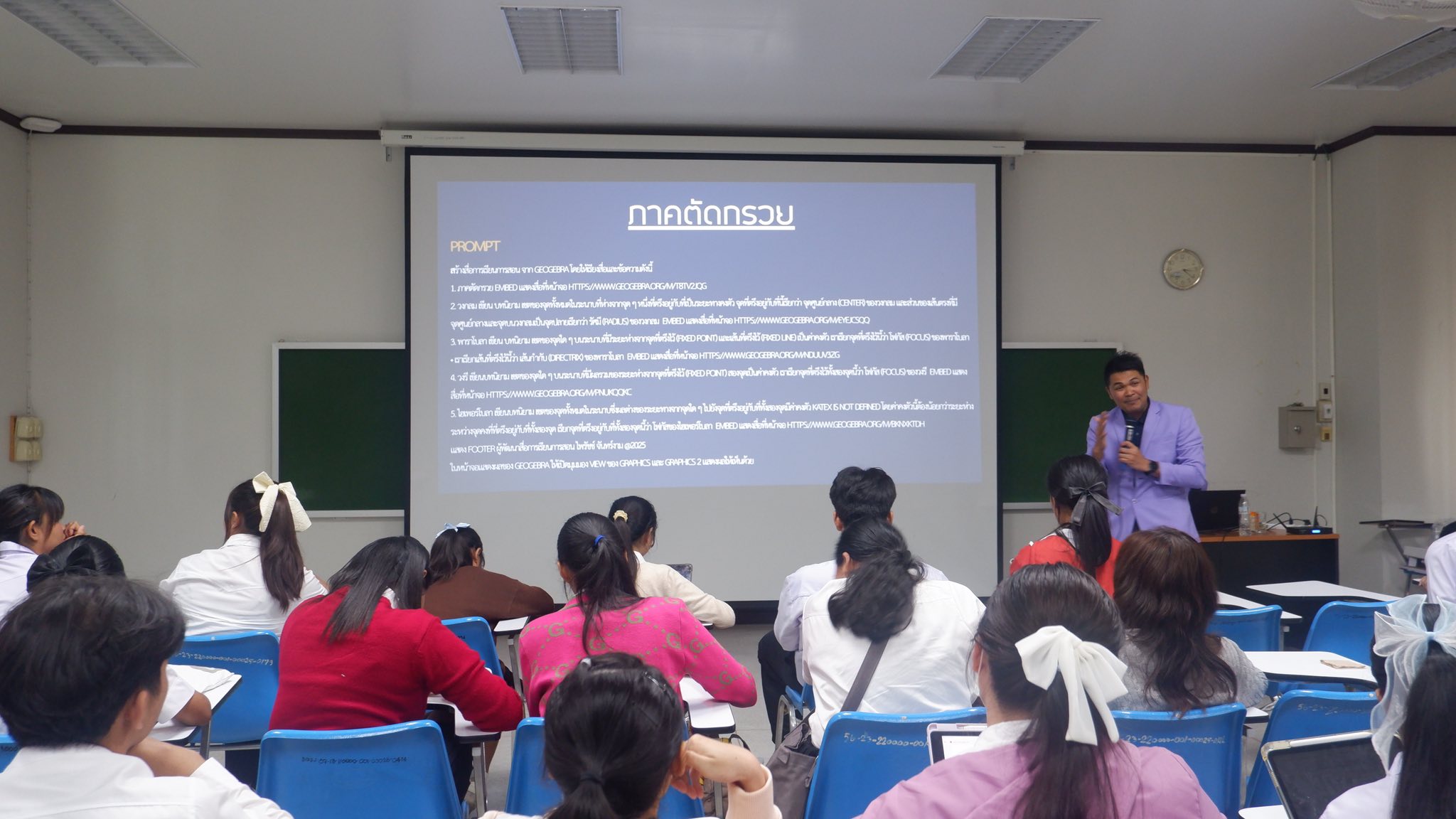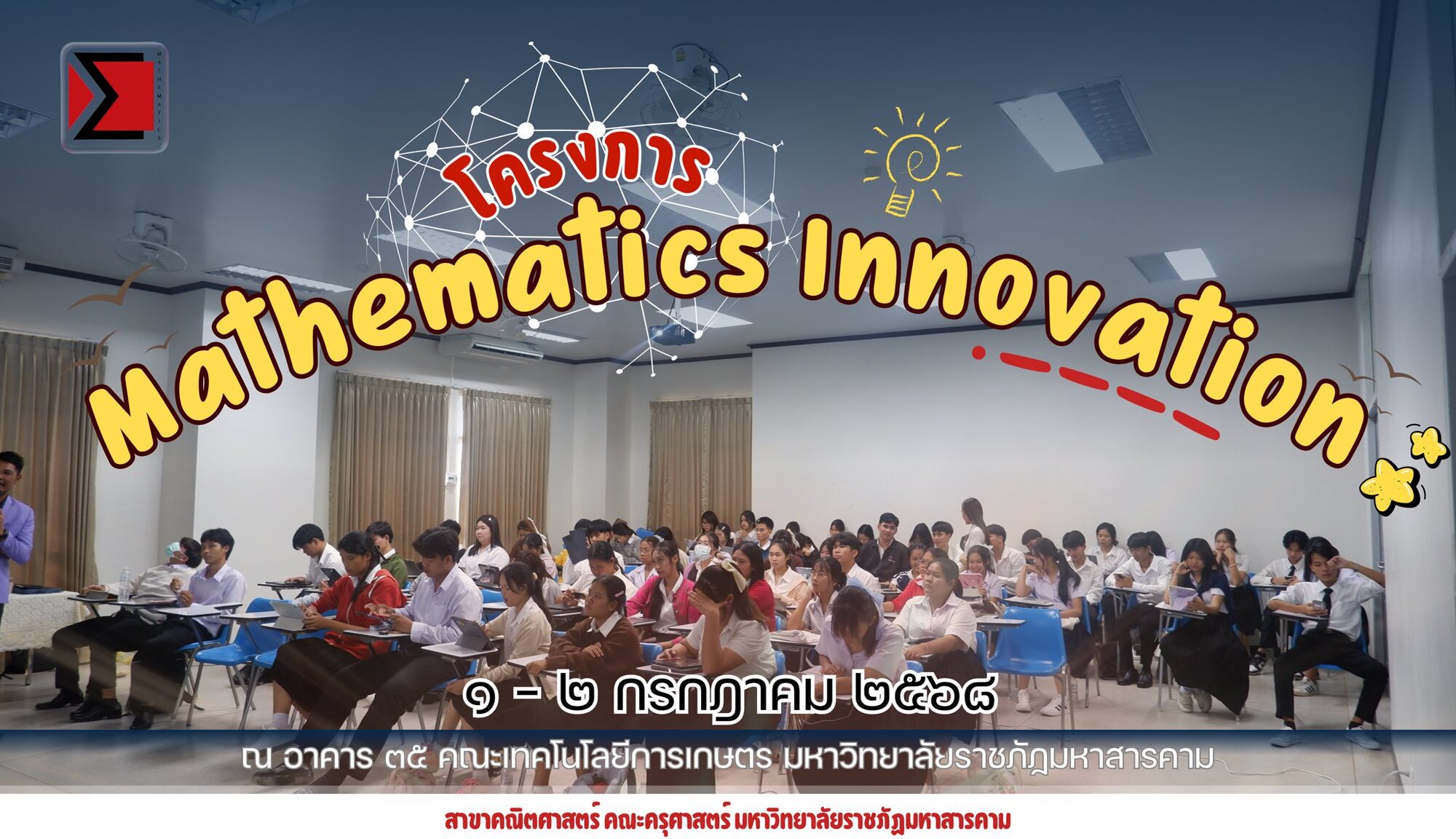
Mathematics Innovation: Transforming Classrooms through Technology-Based Learning Media
ผู้รับผิดชอบ ให้ข้อมูล : Dr. Jenjira Puiwong
SDG ที่เกี่ยวข้อง
เป้าหมายย่อยความสอดคล้องกับยุทธศาสตร์มหาวิทยาลัย : การผลิตและพัฒนาครูมืออาชีพ
แหล่งงบประมาณ : งบประมาณแผ่นดิน
กลุ่มเป้าหมาย : นักศึกษา
Project Implementation Area : Rajabhat Maha Sarakham University ตำบล Talat อำเภอ Mueang Maha Sarakham จังหวัด Maha Sarakham 44000
Project Duration: July 1, 2025 – July 2, 2025
Objectives :
1.To develop students’ knowledge, skills, and moral and ethical values in alignment with the demands of the 21st century.
2.To re-skill and upskill students, enabling them to apply their knowledge effectively in teaching practice or future employment.
3.To equip students with competencies consistent with the PTRU Model framework.
Activities :
This project aims to develop students’ competencies in alignment with the PTRU Model and the core competencies required in the Mathematics Education Program. The development was carried out through a two-day workshop focusing on essential competencies that enable students to apply their knowledge and skills in teaching practice at schools and in their future careers. The project also fostered the teacher’s spirit, emphasizing ethics, morality, and professional conduct to serve as good role models for learners.
The PTRU Model includes 17 competencies, and this workshop focused on developing two key competencies:
Digital Technology Competence – enabling students to select, use, and develop digital technology appropriately for teaching, communication, and educational innovation effectively.
Interdisciplinary Integration Competence – enabling students to connect and apply knowledge from various disciplines creatively and meaningfully in teaching, supporting learners’ 21st-century skill development.
Project Details:
Where: Faculty of Education
When: July 1–2, 2025
What:
Upstream: Conducting needs analysis and a workshop for Faculty of Education staff to enhance understanding of the PTRU Model.
Midstream: Organizing a workshop to strengthen teachers’ and educational personnel’s capacity in competency-based learning design that aligns with local contexts and needs.
How:
Downstream: Monitoring and evaluating the implementation and success of applying competency-based learning approaches in schools.
Number of project participants: 65 people
Project Budget: 30,000 Baht
Results :
Quantitative Results: The study achieved its target of 65 participants. All students (100%) were able to select and use appropriate digital tools, integrate knowledge from multiple disciplines to design lessons, and demonstrate improved digital and creative thinking skills.
Qualitative Results: Students developed broader teaching perspectives and were better able to connect learning with real-life contexts. They showed positive attitudes toward self-development as 21st-century teachers, demonstrated professionalism, and became more aware of teachers’ moral and ethical responsibilities.
Results society :
Students who completed the training were able to apply the competencies they gained in their teaching practice and future careers. Schools and learners benefited from teachers equipped with digital and integrated teaching skills, enhancing the quality of teacher education graduates in line with the PTRU Model and the needs of the digital society.
Participation :
The students participated in a workshop to develop competencies aligned with the PTRU Model framework.
Project continuity :
2nd Year
Problems obstacles :
The training period of only two days was not sufficient for in-depth practice. Some students had different levels of technological skills, leading to learning gaps. In addition, digital equipment and internet resources were sometimes insufficient or unstable. The understanding of how to integrate interdisciplinary knowledge into teaching still requires long-term follow-up and support
Improvement :
The training period should be extended or followed by additional activities such as coaching sessions or Professional Learning Communities (PLC). Adequate digital resources and equipment should be provided to allow participants to practice effectively. There should also be follow-up and evaluation of how participants apply their competencies during teaching practice. Moreover, the project should be expanded to include other key competencies of the PTRU Model that are essential for future teacher development.
Suggestions :
-
